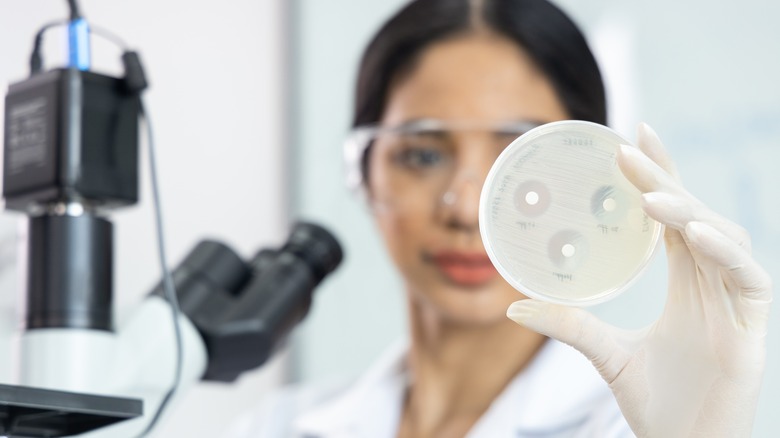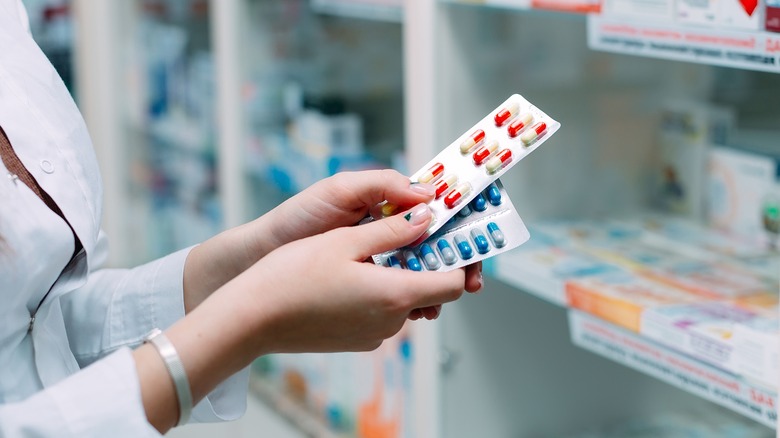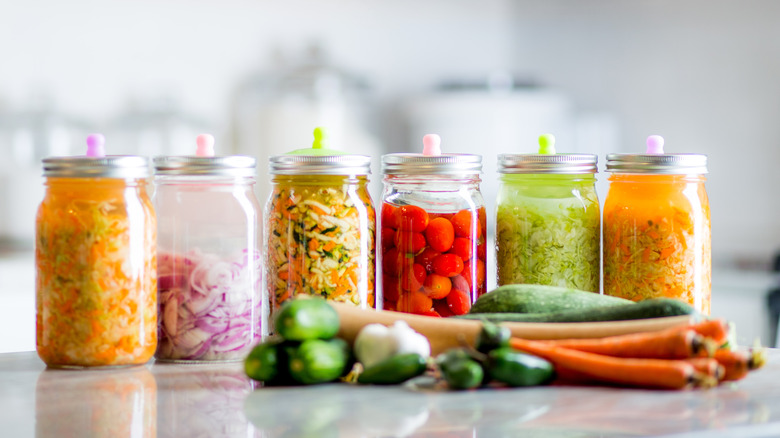Why Some Experts Think The Human Microbiome Could Go Extinct
More than 5 million deaths worldwide can be linked to antimicrobial resistance, and 1.27 million deaths can be directly attributed to antimicrobial resistance, according to a 2022 study in The Lancet. The Centers for Disease Control and Prevention says that just in the United States, 2.8 million infections occur from antimicrobial resistance, resulting in 35,000 deaths. Statistics like these concern microbiologists Dr. Martin Blaser and Dr. Gloria Dominguez-Bello — enough to make the film, "The Invisible Extinction." In it, the team documents the problem of how overprescribing antibiotics can disrupt our microbiome.
In an interview with People, both doctors said excessive antibiotic prescriptions could be linked with childhood illnesses such as asthma, allergies, diabetes, obesity, and autism. A 2016 study in Gastroenterology said that children who receive three or more courses of antibiotics by age 2 are at a higher risk of early childhood obesity. Blaser and Dominguez-Bello also said that when our food is processed, it takes out the gut-healthy fiber. As a result, sweet, salty, and high-fat processed foods can also make our gut health poor.
How antibiotics can disrupt the human microbiome
According to The Scientist, when we take a course of antibiotics, any surviving microbes develop a resistance to antibiotics. This can mean that any future pathogen can cause damage to the body. Because the gut microbiome is its own ecosystem that needs balance, taking antibiotics disrupts this balance, causing some bacteria to grow out of control. These bacteria can resist antibiotics.
A 2022 study in Cell Reports exposed 20 healthy people to a 5-day dose of either azithromycin, levofloxacin, cefpodoxime, or a combo of cefpodoxime and azithromycin. These are common antibiotics to treat bacterial infections such as bronchitis, pneumonia, or gastroenteritis. After the course of antibiotics was finished, the microbiome diversity significantly decreased. Some of the volunteers in the study had such a significant reduction in diversity in their gut that their microbiome looked similar to patients in the ICU.
The study found that it took about two months to restore microbial diversity back to healthy levels. The antibiotic azithromycin also took much longer to recover back to health. The researchers also noted that the microbiomes changed, leading to "antibiotic scarring."
What you can do to protect your gut health
The CDC stresses that antibiotic resistance doesn't mean your body is resistant to antibiotics. It means that certain bacteria are resistant to the drugs that typically treat them. You can reduce your risk of spreading infections or getting infections from others by practicing good hygiene, staying updated with vaccinations, and managing chronic conditions. If you have a virus, don't insist that your doctor prescribe you an antibiotic. Antibiotics treat bacterial, not viral, infections.
The Canadian Digestive Health Foundation says that if your doctor does give you a course of antibiotics, you might want to take a probiotic to help your gut. Ask your doctor which type of probiotic to take to address any conditions you might have. The good bacteria in your gut need food, so you can feed them vegetables (such as leafy greens) to keep your gut healthy. On the other hand, sugars digest too quickly, which means your good bacteria starve and can begin feeding on the lining of your intestine. This can create inflammation.
Prebiotics such as whole grains, nuts, seeds, asparagus, apples, and beans help nourish your microbiome, and you'll also want to include fermented foods such as kombucha, pickles, and kimchi. Food isn't the only way to improve your gut microbiome. Be sure to get enough sleep and exercise, and do what you can to manage stress.



